Ertach Kernow - Cornish Poets and Poetry
Cornish poets and poetry is a topic that perhaps should have been addressed far earlier in these articles about Cornwall's poetic heritage. So, time to mention a few some well-known poets and others perhaps not so well recognised. Many artists, sculptors and writers have moved to Cornwall their activities being stimulated through Cornwall’s people, places and environment. This is what makes their work Cornish, their love of the place that inspired it.
In preparing a talk on William Golding recently I thought it a shame that his earliest work ‘Poems’ published in 1934 has slipped so far from public awareness. To be fair this book is virtually unobtainable and only available in its first edition at nearly three thousand pounds. In an interview with Professor Bernard Dick in the early 1960’s Golding answered an enquiry to comment on his early book of poems, replying ‘I don’t own a copy, but there must be one somewhere. Yes at the British Museum. The Bodleian of course, Actually I’d rather forget it.’ He had actually owned a copy albeit briefly, buying it just to rip it in half. When Professor Dick pointed out that there was a definite poetic strain in his fiction, a point where prose almost becomes poetry, he nodded vigorously. ‘Ah, you we you said almost. But not quite. And it's not poetry because I write prose. The novelist is a displaced person, torn between two ways of expression." After a pause he’s added a bit ruefully. ‘You might say I write prose because I can't write poetry.’
He had been paid by Macmillan’s the publishers five pounds for this work and he would not publish again for twenty years until his seminal novel ‘Lord of the Flies’ in 1954. He produced a number of books novels, non-fiction and was a James Tait Black Memorial Prize and a Booker Prize winner. He was honoured with the Nobel Prize for Literature in 1983 and knighted by Queen Elizabeth in 1988. Born in Newquay in 1911 this year marks the 30th anniversary of his death in 1993 at Perranarworthal where he lived after returning to Cornwall in 1985.
Reverend Stephen Hawker, vicar of Morwenstow is best known for his poem ‘Song of the Western Men’ written in 1825. This poem now famous and known as Trelawny was placed to music by Louise Theodora Clare in 1861. Known for many things including his eccentricities but less so as a poet he was known to many famous writers and poets of his day. The Poet Laureate Alfred Lord Tennyson visited Hawker in 1848 and was highly influenced by him leading up to his cycle of twelve narrative poems entitled ‘Idylls of the King’ published between 1859 and 1885.
A number of poetry books were published by Hawker one of his final works being ‘The Quest of the Sangraal’ his unfinished Arthurian poem. His final lifetime publication was ‘Footprints of Former Men in Cornwall’ a collection of papers and articles written by him over a number of years. Hawker did much over his life especially at Morwenstow and this deserves a longer article. A mention of his poetry here helps enlighten people as to his most famous work now sung on the terraces, town halls and elsewhere throughout Cornwall and worldwide Cornish communities. Having just read from my copy of ‘Echoes of Old Cornwall’ published in 1846 some of the poems are very pleasing and I can imagine Hawker sitting in his now famous hut overlooking the sea and composing, whilst smoking his opium pipe.
The memory of the poet John Harris is kept alive by the John Harris Society who endeavour to highlight and share his work. John Harris has been one of the topics studied by the History Heritage and Culture foundation degree course at Truro College. This has helped bring knowledge of Harris’ work to a younger audience and also through their exhibition at Newquay Museum and online to many other people. John Harris was born in the village of Bolenowe, near Troon in 1820. As usual for that time he commenced work aged just ten, tin working in the area then known as Forest Moor close to home. By the age of thirteen he had joined his father mining at Dolcoath Mine where he worked for the following 24 years. An avid reader from an early age he started rhyming and writing poetry more or less as soon as he could read and write. He used any scraps of paper even slate to record his thoughts for poems. He married Jane Rule of Troon in September 1845 and with her had two sons and two daughters. His youngest daughter Lucretia died in 1855 after which he wrote a touching poem about her death.
Harris also wrote about the emancipation of slavery, mining, nature and beautiful scenery. After one of his poems was published in a magazine it was seen and received positively he was encouraged to compile a collection which was published in 1853. He went on to publish sixteen volumes of poetry after being able to leave the mine and becoming a scripture reader in Falmouth. He became a fellow of the Royal Historical Society in April 1879 for being ‘distinguished in letters’ and was awarded £200 from the Royal Bounty Fund by Prime minister Benjamin Disraeli and a further £100 in 1881 by William Gladstone. Harris died in Falmouth in 1884 and was buried at his request at Treslothan in the churchyard at St John the Evangelist Church.
Born Reginald John Clemo, but better known as Jack Clemo, this Cornish poet and author was born in 1916 in Goonamarris a hamlet in the parish of St Stephen in Brannel. Jack’s father Reginald had worked on a clay-dry but during World War One had joined the Royal Navy. Reginald drowned when his ship was lost in 1917, his body never recovered. His mother Eveline was the daughter of a Methodist preacher and led to Jack being brought up by his widowed mother in a religious fashion. He enjoyed reading hugely and by the age of for was an avid reader. At school he was excellent at writing and as could be expected religious studies as well, but he hated it. His first case of blindness occurred at the age of five and diagnosed as iritis, an inflammation of the coloured part of the eye. This reoccurred again at age thirteen and by the age of nineteen had started to become increasingly deaf and later lost his sight totally aged 39.
His first novel, Wilding Craft, was published in 1948 winning the Atlantic Award in Literature from Birmingham University. A L Rowse the well-known historian and author wrote ‘He is of the spiritual progeny of that greatest of West Country writers, Thomas Hardy.’ Much of his work related to the area around where he lived, the growth of clay pits and later their abandonment and how nature reclaims back the area. He was made a bard of Gorsedh Kernow in 1970. Marrying in 1968 to Ruth Peaty he moved to Weymouth in later life where he died in 1994.
A poet mentioned before in Ertach Kernow is Arthur Bruce Caddick. Born in Yorkshire in 1911 he eventually moved to Cornwall living at 'Windswept', a cottage above the village of Nancledra in West Penwith. There he lived for 36 years finding inspiration for his work in the place and people with whom he lived and associated with. He became involved in the Cornish nationalist movement and wrote a number of books relating to Cornwall which included many Cornish related poems. After a period of illness Arthur died in 1987 in Devon.
Arthur it seems was bit of a card who enjoyed a pint and brought out a lovely small pocketbook called ‘One Hundred Doors are Open’ in 1956, about various Cornish pubs in mid and east Cornwall. He was what might be termed a poet for entertainment rather than perhaps a more highbrow writer of poetry or prose. Caddick’s book ‘Broadsides From Bohemia - In Praise Of Painters, Publicans And Other Cornish Saints’ published in 1973 was described by well-known author and editor of the Cornish Review Denys Val Baker as ‘eminently readable’ and about ‘publicans and bohemians and artists and beatniks and nationalists’. The 1950’s and early 1960 was a time when Cornwall especially towns like St Ives and Newquay had an influx of what were then known as beatniks, of whom Caddick had a very low opinion. He managed to have a number of his poems published in the satirical magazine Punch renowned for humour and cutting commentary. In 1940 the well-known publishing house Hutchinson published Arthur’s book 'Respectable Persons' described as ‘a novel of brilliant satire and exquisite humour’ This has recently been republished by The St Ives Printing and Publishing Company with profits from its sale supporting St Ives Library.
His published poetry books include 'The Ballad of Michael Joseph, the Captain of Cornwall' (1947), 'Alphabet of West Cornwall' (1963), 'A Croft in Cornwall' (1968), and 'Broadsides from Bohemia’ (1973). His autobiography 'Laughter at Land's End' was published in 2005. Arthur Caddick has been called the Poet Laureate of West Cornwall and although perhaps not as well-known as many other poets and writers working in Cornwall, he certainly deserves to be remembered and his work read.
Here's the dear small book that introduced me to Arthur Caddick, sadly withdrawn from Penzance Public Library but finding its way to a private library where it is appreciated and its existence shared online.
There are many more poets including those who are better known but they will need to wait for another day.
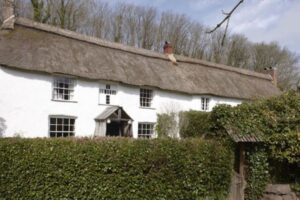
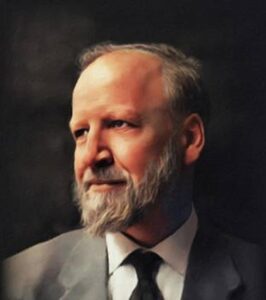
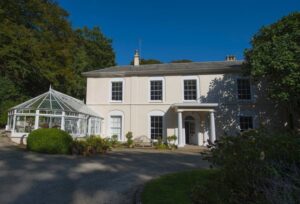
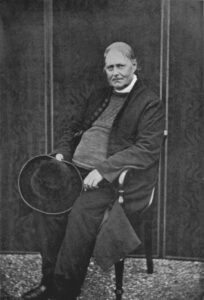
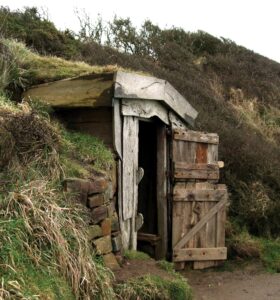
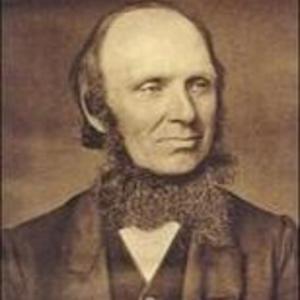
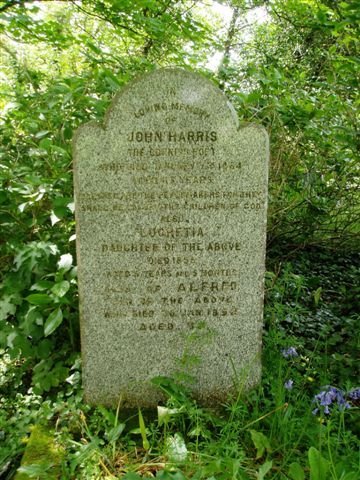
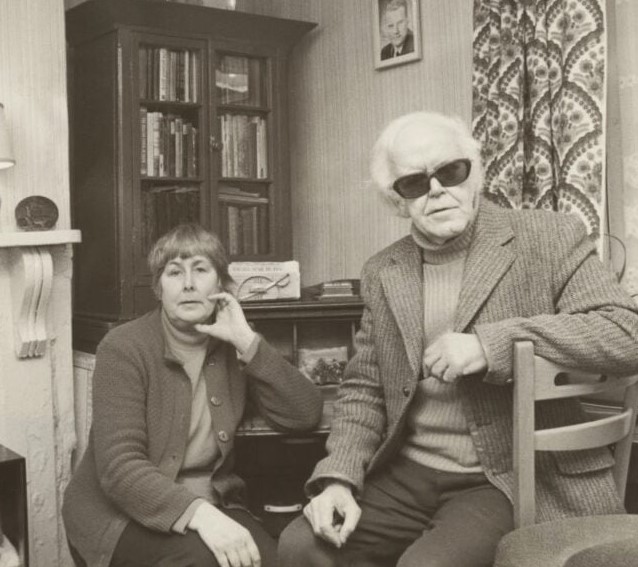
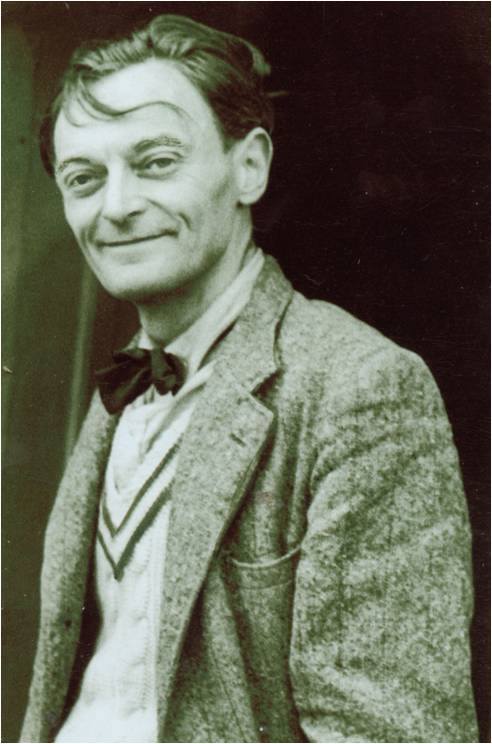
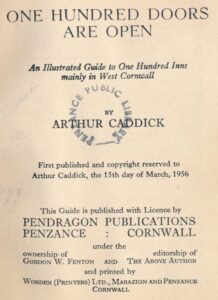
![Ertach Kernow - 05.04.2023 [1] Cornish Poets & Poetry Cornish Poets and Poetry](https://www.cornwallheritage.com/wp-content/uploads/2023/04/Ertach-Kernow-05.04.2023-1-Cornish-Poets-Poetry-254x300.jpg)
![Ertach Kernow - 05.04.2023 [2] Cornish Poets & Poetry Cornish Poets and Poetry](https://www.cornwallheritage.com/wp-content/uploads/2023/04/Ertach-Kernow-05.04.2023-2-Cornish-Poets-Poetry-254x300.jpg)
![[145] Ertach Kernow Heritage Column - 5th April 2023 - Various Ertach Kernow Heritage Column - 5th April 2023](https://www.cornwallheritage.com/wp-content/uploads/2023/04/145-Ertach-Kernow-Heritage-Column-5th-April-2023-Various-283x300.jpg)